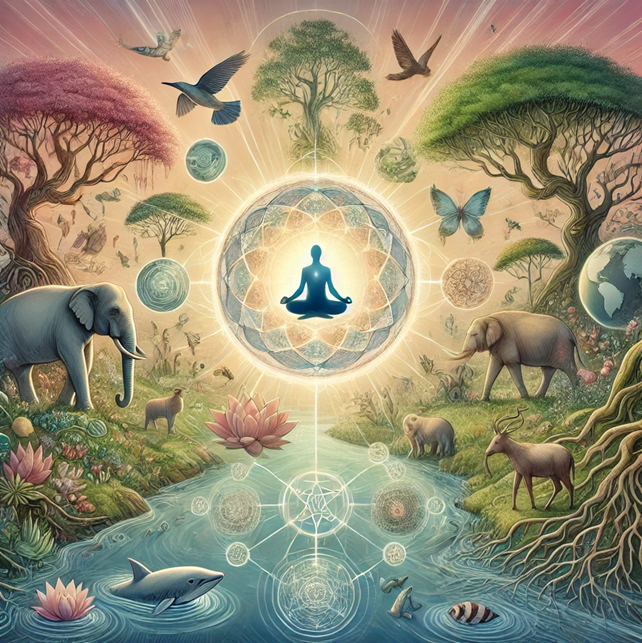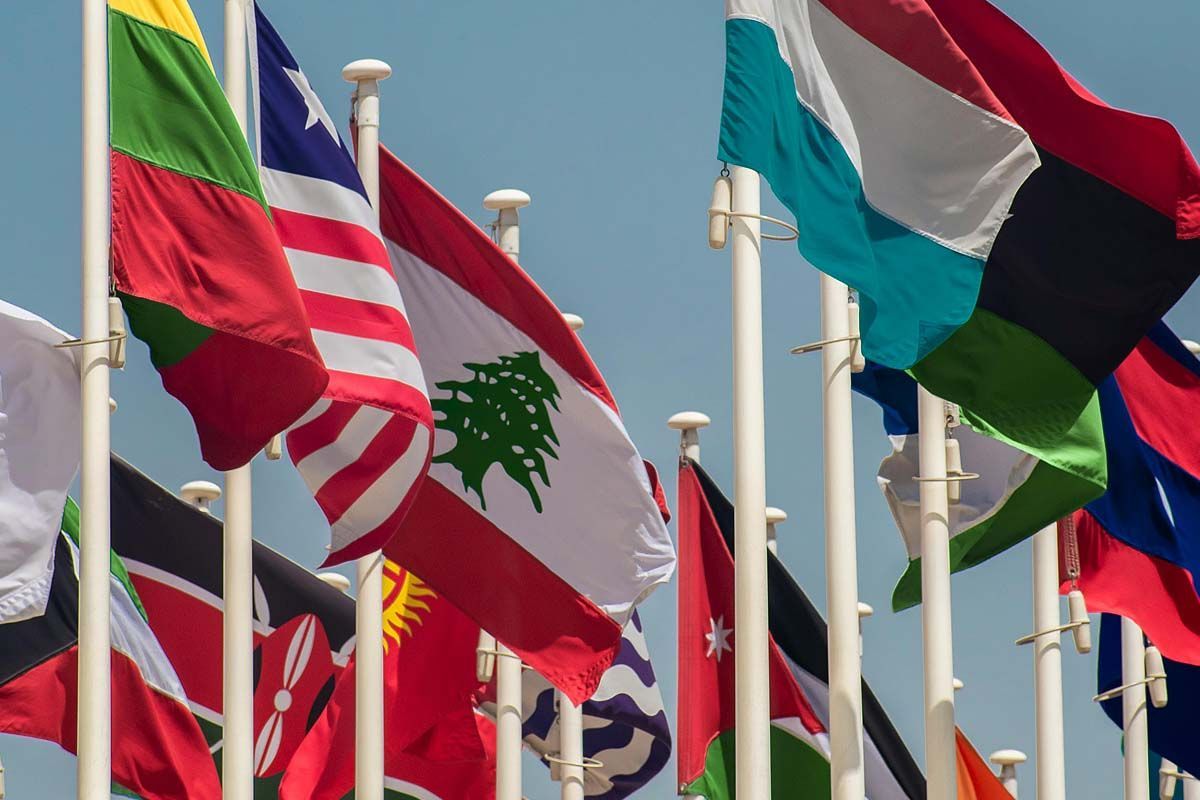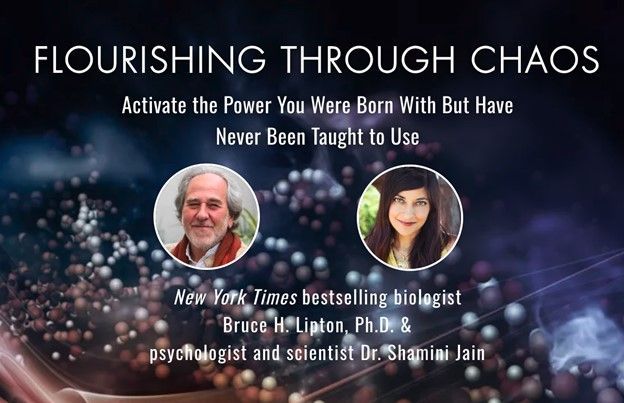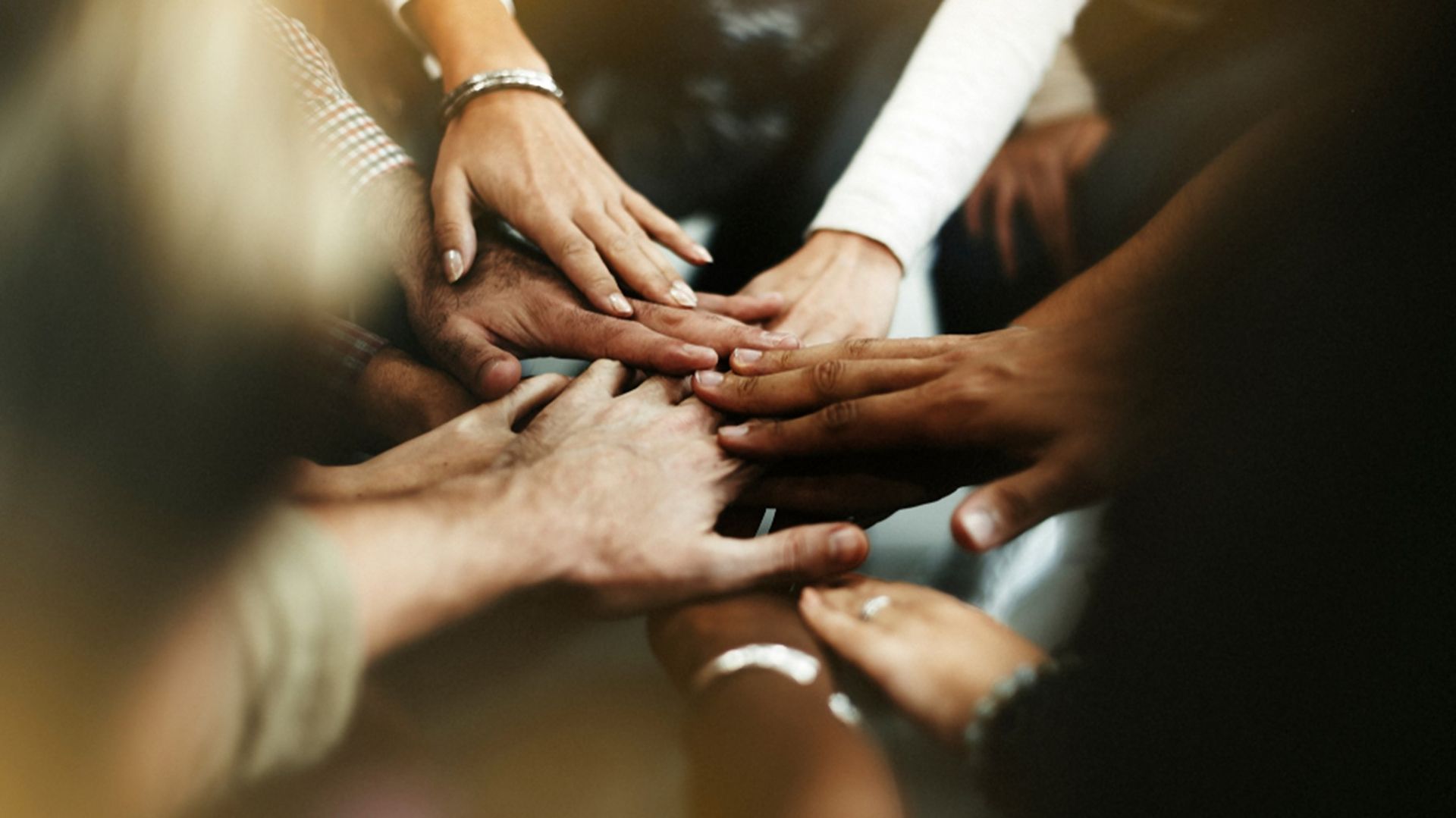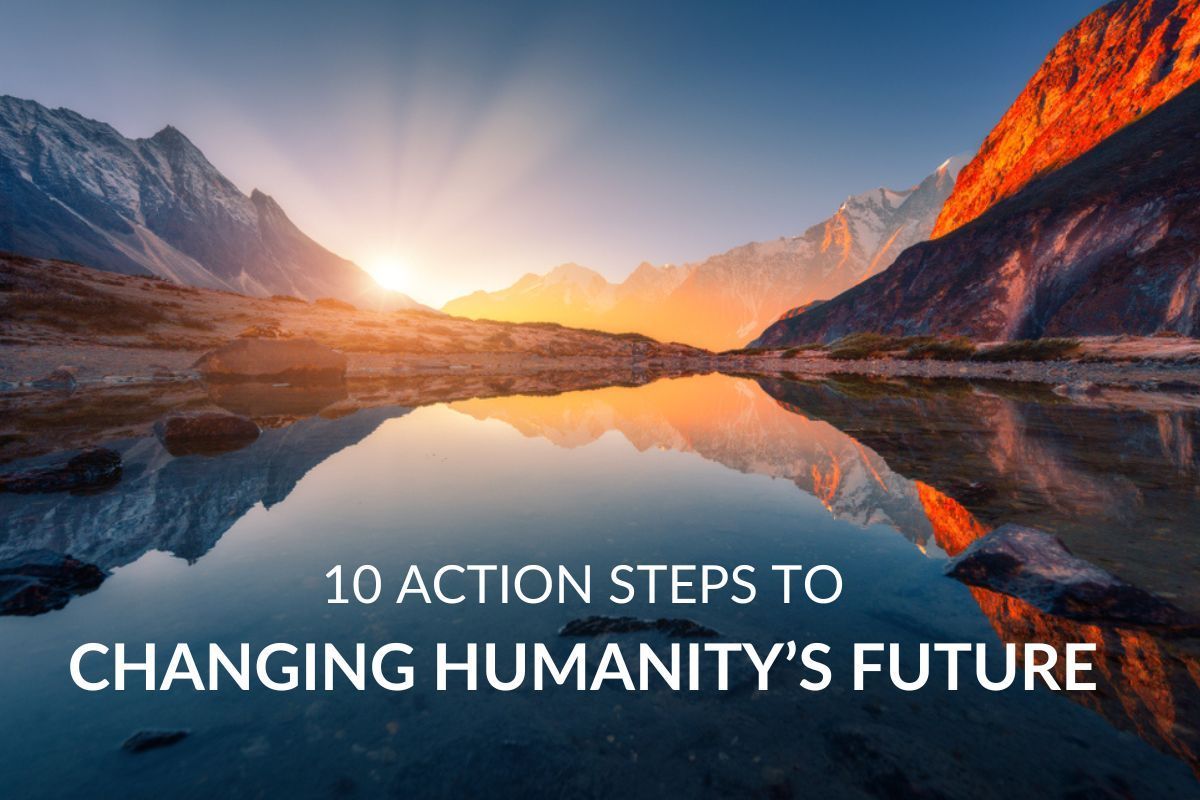By Steve Farrell
•
February 7, 2025
In the beautiful tapestry of life, cultural diversity serves as one of the most vibrant threads, enriching our collective human experience and deepening our understanding of oneness. As we traverse this journey together on our planet, it becomes increasingly clear that recognizing and celebrating our differences not only enhances our lives but also aligns us with the fundamental truth that we are all interconnected. This understanding is vital for the evolution of consciousness and for creating a world where every individual can thrive. Embracing the Tapestry of Humanity Cultural diversity is more than just a collection of various customs, languages, and traditions; it is the embodiment of human experience, shaped by history, geography, and the innate creativity of diverse peoples. Each culture offers unique insights into the human experience, reflecting distinct ways of perceiving the world, interpreting existence, and understanding our place within it. By embracing this diversity, we can better appreciate the many perspectives that contribute to the mosaic of humanity. Imagine walking through a bustling marketplace filled with colorful fabrics, tantalizing aromas, and the melodic sounds of laughter and conversation. Here, every stall is a microcosm of a culture, offering glimpses into the values and beliefs that shape individual lives. As we engage with these diverse expressions of life, we expand our worldview, recognizing that there is no single way to understand the universe or our existence within it. This acknowledgment fosters compassion, empathy, and a deeper connection to one another, reinforcing the idea that we are all part of a larger whole. The Gift of Different Perspectives Cultural diversity enriches our lives by introducing us to alternative viewpoints that challenge our preconceived notions. When we open ourselves to different ways of thinking, we cultivate a mindset of curiosity and learning. This process encourages dialogue and collaboration, as we seek to understand each other's experiences and perspectives. It is through these conversations that we often find common ground, recognizing shared values such as love, family, and the desire for peace and happiness. For instance, consider the various interpretations of community across cultures. In some cultures, community may be centered around the extended family, while in others, it may encompass a broader network of friends and neighbors. By exploring these differences, we gain insights into the diverse ways people create support systems and foster relationships. This understanding helps us appreciate the importance of community in our own lives and encourages us to build bridges that connect us rather than walls that divide us. Learning from Each Other’s Stories One of the most powerful ways cultural diversity enhances our understanding of oneness is through storytelling. Stories are the heartbeats of cultures; they carry the wisdom of generations and convey lessons about resilience, hope, and the human spirit. When we share and listen to stories from different cultures, we gain a deeper appreciation for the struggles and triumphs that shape our collective experience. Imagine listening to a Native American elder recounting tales of their ancestors’ connection to the land or a South Asian grandmother sharing recipes infused with memories of family gatherings. Each story paints a picture of love, sacrifice, and the enduring human spirit, allowing us to see the world through another’s eyes. These narratives foster a sense of unity, as we realize that despite our cultural differences, we share common themes that bind us together. Furthermore, storytelling transcends language barriers, creating a shared emotional experience that resonates with all of us. It invites us to embrace vulnerability and compassion, recognizing that we are not alone in our struggles or joys. This interconnectedness reinforces the notion of oneness, reminding us that we are all part of a grand narrative unfolding on this planet. Cultural Exchange as a Catalyst for Change Cultural diversity also serves as a catalyst for change, inspiring innovation and creativity. When individuals from different backgrounds come together, they bring unique ideas, perspectives, and problem-solving approaches. This blend of thoughts can lead to groundbreaking solutions to the challenges we face as a global community. Take, for example, the field of science. Many of the world’s greatest discoveries have emerged from collaborative efforts between individuals of diverse cultural backgrounds. The exchange of knowledge and ideas fosters an environment of innovation, encouraging us to think outside the box and explore new possibilities. As we celebrate and leverage cultural diversity, we empower ourselves to create a more sustainable and equitable world. Moreover, as we embrace cultural exchange, we cultivate an atmosphere of respect and understanding. When we learn about each other’s traditions, we are more likely to challenge stereotypes and prejudices that divide us. This process encourages inclusivity and promotes social cohesion, creating a foundation for a more harmonious existence. The Path to Global Citizenship As we deepen our understanding of oneness through cultural diversity, we move toward becoming global citizens. Global citizenship is rooted in the belief that we are all part of a larger human family, regardless of our cultural differences. It calls us to engage with the world around us, advocate for justice, and contribute positively to the communities we inhabit. Being a global citizen means recognizing that our actions have far-reaching consequences. As we cultivate empathy and compassion through our understanding of diverse cultures, we become more conscious of our responsibilities to one another and to the planet. This awareness drives us to act with integrity, advocate for equality, and work collaboratively to address the pressing issues that affect humanity, such as climate change, poverty, and inequality. To embody the principles of global citizenship, we must commit to continuous learning. This includes educating ourselves about different cultures, listening to diverse voices, and engaging in meaningful conversations. By doing so, we not only expand our understanding of the world but also inspire others to join us on this journey toward unity and compassion. The Ripple Effect of Conscious Living As we embrace cultural diversity and deepen our understanding of oneness, we set in motion a ripple effect that can transform our world. Every conversation, every connection, and every act of kindness contributes to a growing movement toward conscious living. When we live with awareness of our interconnectedness, we create spaces for collaboration, understanding, and love to flourish. This ripple effect extends beyond our immediate circles, impacting families, communities, and even nations. As we cultivate a culture of acceptance and understanding, we inspire others to do the same. Together, we can create a collective consciousness that prioritizes compassion, empathy, and the recognition of our shared humanity. Navigating Political Change Through the Lens of Oneness: A Path to Unity and Collective Growth In our ever-evolving world, political landscapes shift like the tides, influenced by a myriad of factors that often seem beyond our control. Amidst this flux, it's easy to feel disconnected, overwhelmed, or even hopeless. However, as we journey together through these turbulent waters, I invite you to explore a transformative perspective: viewing our political realities through the lens of Oneness. This approach not only fosters understanding but also empowers us to navigate political change with grace, compassion, and purpose. Understanding Oneness At its core, Oneness is the recognition that we are all interconnected—each of us a unique expression of the same universal spirit. This profound truth transcends boundaries, be they geographical, cultural, or ideological. When we embrace Oneness, we begin to see that every individual, every community, and every nation is part of a larger tapestry woven together by our shared humanity. This perspective is especially relevant in today’s politically charged climate. With polarization and division seemingly at an all-time high, the practice of seeing ourselves as interconnected becomes not just a lofty ideal, but a necessary foundation for constructive dialogue and effective change. The Political Landscape: A Reflection of Our Collective Consciousness Political change is often a reflection of the collective consciousness of society. It mirrors our beliefs, values, and fears. When we view politics through the lens of Oneness, we can begin to understand that the issues at play are not merely political disputes but deeply rooted expressions of our shared human experience. For example, debates surrounding social justice, environmental responsibility, and economic equity highlight our collective desires for a more just and sustainable world. When we engage with these issues, we must ask ourselves: How do our beliefs reflect a desire for Oneness? How can we shift our perspectives to foster unity rather than division? Embracing Compassionate Communication As we navigate political change, the need for compassionate communication becomes paramount. When we engage with others—especially those who hold differing viewpoints—through a lens of Oneness, we approach conversations with empathy and understanding. Listen Deeply: Active listening is an essential component of compassionate communication. Rather than preparing your response while someone else is speaking, allow yourself to fully absorb their perspective. This practice not only fosters understanding but also builds trust. Seek Common Ground: In any political discussion, there is often a shared desire for a better future. Focus on what unites us rather than what divides us. By identifying common values and goals, we create a foundation for productive dialogue. Express Vulnerability: Sharing our own uncertainties and vulnerabilities can open the door to deeper connections. When we acknowledge our fears and doubts, we humanize ourselves and invite others to do the same. Transforming Conflict into Collaboration In a world where conflict often seems inevitable, the practice of Oneness offers a pathway to transform discord into collaboration. Instead of viewing political differences as insurmountable barriers, we can see them as opportunities for growth and understanding. Consider the metaphor of a symphony: Each instrument contributes its unique sound to create a harmonious whole. Similarly, our diverse perspectives enrich the political landscape. By working collaboratively, we can blend our ideas and efforts to create solutions that resonate with the collective heart of humanity. Engage in Dialogue: Create spaces for open dialogue where diverse viewpoints can be expressed and explored. This can take the form of community forums, online discussions, or small group conversations. The goal is to foster an environment of respect and understanding. Collaborate on Solutions: Rather than fixating on differences, let’s focus on finding solutions together. Engage in brainstorming sessions that prioritize inclusivity and creativity. By combining our strengths, we can co-create initiatives that reflect the values of Oneness. Cultivate Emotional Intelligence: Understanding our own emotions and the emotions of others is key to navigating political change. When we practice emotional intelligence, we become more adept at managing conflicts and fostering empathy. The Role of Education in Fostering Oneness Education plays a crucial role in shaping our collective consciousness. By fostering an understanding of Oneness within educational systems, we can empower future generations to approach politics with compassion, empathy, and a commitment to unity. Integrate Oneness into Curricula: Schools and educational institutions can incorporate teachings on Oneness, emphasizing our interconnectedness and shared responsibilities. This can include exploring cultural diversity, environmental stewardship, and social justice. Encourage Critical Thinking: Teaching students to think critically about political issues and to engage with diverse viewpoints prepares them to navigate complex landscapes. Encourage discussions that explore the nuances of political topics and promote respectful debate. Promote Civic Engagement: Encourage students to participate in their communities, whether through volunteering, advocacy, or civic dialogue. By engaging with real-world issues, they will develop a deeper understanding of the importance of collective action. Harnessing the Power of Collective Action As we embrace the principles of Oneness, we are empowered to engage in collective action that drives positive political change. When we unite around common goals and values, our collective voices become a powerful force for transformation. Advocacy and Activism: Engage in advocacy efforts that align with your values and beliefs. Whether it’s supporting environmental policies, social justice initiatives, or healthcare reforms, your voice matters. Join forces with like-minded individuals to amplify your impact. Participate in Grassroots Movements: Grassroots movements are often at the forefront of political change. Participate in local initiatives that reflect the principles of Oneness, advocating for policies that prioritize the well-being of all. Support Organizations That Promote Unity: Contribute to organizations that align with your vision of Oneness. Whether through donations, volunteer work, or spreading awareness, your support can help create systemic change. A Vision for the Future As we navigate the complexities of political change, let us hold a vision for a future rooted in Oneness. Imagine a world where political discourse is characterized by compassion, understanding, and collaboration. Picture communities coming together to solve pressing issues, driven by a shared commitment to the greater good. This vision is not just a dream; it is achievable. Each of us has a role to play in creating this reality. By embracing the principles of Oneness, we can foster a culture of unity that transcends political divides and promotes collective well-being. Exploring the Concept of Oneness in Modern Society In today’s world, as we navigate the complexities of modern life, the concept of oneness beckons us to look beyond the surface of our individual experiences and embrace a deeper, unifying truth. Oneness, at its core, reminds us that we are interconnected—not just with one another, but with all life and the entire cosmos. This understanding has profound implications for how we live, relate, and contribute to the collective evolution of humanity. The Essence of Oneness Oneness is not merely a spiritual or philosophical idea; it is a lived reality for those who choose to see the interconnected threads that weave through all existence. Quantum physics tells us that everything in the universe is interconnected at a fundamental level. Mystics and sages throughout history have expressed this same truth, albeit in poetic and heart-centered ways. Whether through science, spirituality, or personal experience, the essence of oneness invites us to transcend the illusion of separation and recognize our shared humanity and divine nature. When we understand oneness, we see that every thought, word, and action has a ripple effect on the greater whole. This awareness calls us to live consciously and intentionally, knowing that our choices matter not just for ourselves, but for the collective well-being of all. The Challenge of Separation Despite the inherent truth of oneness, modern society often perpetuates the illusion of separation. We see it in the divisions between nations, races, religions, and socio-economic classes. We experience it in the competition-driven narratives of success and the “me-first” mindset that dominates much of our culture. These constructs create barriers which lead to fear, misunderstanding, and conflict. The illusion of separation also manifests in our relationship with the natural world. We have distanced ourselves from the earth, treating it as a resource to exploit rather than a living, breathing organism of which we are an integral part. This disconnection has fueled environmental crises, highlighting the urgent need for a shift in consciousness. But here’s the good news: the tide is turning. Across the globe, individuals and communities are awakening to the reality of oneness and embodying it in transformative ways. Oneness in Action: Bridging Divides So, how do we bring the concept of oneness into the fabric of modern society? It begins with a shift in perspective—seeing the world through the lens of unity rather than separation. From there, we can take conscious actions to bridge divides and foster connection. Cultivating Empathy and Compassion: At the heart of oneness is a deep sense of empathy and compassion for all beings. When we understand that the joys and struggles of others are reflections of our own, we can approach relationships with greater kindness and understanding. This shift can transform our personal interactions and ripple out to create more harmonious communities. Building Inclusive Communities: Oneness calls us to celebrate diversity while recognizing our shared humanity. Inclusive communities embrace people from all walks of life, fostering a sense of belonging and mutual respect. Whether through grassroots movements, workplace initiatives, or educational programs, we can create spaces where everyone feels seen, heard, and valued. Healing Our Relationship with Nature: Oneness extends beyond human relationships to include all life forms and the planet itself. By reconnecting with nature, we remember our place within the web of life. This can inspire us to adopt sustainable practices, support conservation efforts, and advocate for policies that protect the environment. Promoting Conscious Leadership: Leaders who embody oneness prioritize the well-being of all over personal or partisan gain. They make decisions guided by integrity, compassion, and a long-term vision for the greater good. As individuals, we can support such leaders and hold them accountable to these principles. Harnessing the Power of Collaboration: When we embrace oneness, collaboration becomes a natural way of being. By working together across disciplines, cultures, and sectors, we can address complex global challenges more effectively. Collaboration rooted in mutual respect and shared purpose has the power to create innovative solutions and amplify positive impact. Oneness and Inner Transformation While societal change is essential, the journey of oneness begins within. It requires us to examine our own thoughts, beliefs, and behaviors. Are we operating from a place of fear and separation, or love and unity? Are we choosing to see the divine in ourselves and others, even in challenging situations? Practices such as mindfulness, meditation, and self-inquiry can help us cultivate this inner awareness. By connecting with our own inner wholeness, we become more attuned to the oneness that permeates all of life. This inner transformation empowers us to show up in the world with greater authenticity, resilience, and purpose. The Ripple Effect of Living Oneness As more individuals awaken to oneness and embody it in their daily lives, a powerful ripple effect emerges. This is how movements are born, how cultures evolve, and how the world transforms. Imagine a critical mass of people choosing love over fear, connection over division, and collaboration over competition. The possibilities are limitless. We are already seeing glimpses of this shift. Grassroots movements advocating for social justice, environmental sustainability, and global cooperation are gaining momentum. Organizations dedicated to conscious business, holistic education, and integrative healthcare are paving the way for a more harmonious and equitable society. These are signs that the consciousness of oneness is taking root. Oneness as a Path to Flourishing Living in alignment with oneness is not only fulfilling on a personal level; it is also the key to creating a flourishing world for future generations. When we act with awareness of our interconnectedness, we contribute to a culture of peace, sustainability, and collective well-being. We create a world where everyone has the opportunity to thrive. This is not a distant utopian vision. It is a very real possibility within our reach. Each of us has a role to play in bringing it to fruition. By living consciously – and choosing oneness in our thoughts, words, and actions – we become catalysts for positive change. A Call to Action As we reflect on the concept of oneness in modern society, let us remember that it is not an abstract ideal but a lived experience. It is an invitation to see the sacred in ourselves, in each other, and in the world around us. It is a call to rise above the illusion of separation and step into our highest potential as co-creators of a thriving planet. So, I invite you to ask yourself: How can I embody oneness in my daily life? What small yet meaningful steps can I take to foster connection, healing, and unity in my sphere of influence? Whether it’s through acts of kindness, engaging in heartfelt conversations, or supporting initiatives that align with your values, every action counts. Together, we can weave the fabric of oneness into the very essence of modern society, creating a legacy of love, harmony, and hope for generations to come. In the words of the great humanitarian Albert Schweitzer, “The purpose of human life is to serve, and to show compassion and the will to help others.” Let us live this purpose with open hearts and unwavering commitment, knowing that we are all part of something infinitely greater than ourselves. Together, we rise. Together, we thrive. Together, we embody oneness. Conclusion: Celebrating Our Unity in Diversity In conclusion, cultural diversity is not just a backdrop to our existence; it is a powerful force that enhances our understanding of oneness. By embracing our differences, we cultivate empathy, foster innovation, and move toward a world where everyone is valued and respected. As we navigate this journey of consciousness, let us celebrate the rich tapestry of human experience and commit to living with love and awareness. Together, we can create a world where cultural diversity is cherished, and our collective understanding of oneness guides us toward a brighter future. Let us strive to be conscious citizens of this planet, dedicated to nurturing connections that honor our shared humanity. In doing so, we can manifest a flourishing world for generations to come, fulfilling the promise of oneness that lies at the heart of our existence.

